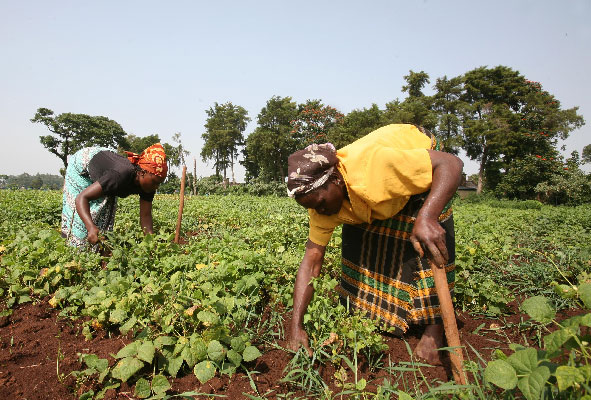The potential for Africa as the world’s leader in agriculture is immense with a hydroponic system. The future is Africa in terms of agriculture lies not in its immense arable land but indoor farms powered by some of the best hydroponic systems!
Africa is blessed with a land rich in biodiversity and natural resources. With so much natural wealth, one would think that the continent leads the world in agriculture. However, this is beyond true. In fact, in many ways, land farming has led to environmental degradation in this beautiful continent. The pesticides used in farms have poisoned lakes and rivers, as well as killed important insects and other animals. Fertilizer runoff has caused algal blooms in watersheds. Continuous farming has altered many ecosystems, which eventually led to the desertification of once lush forest lands and savannahs.
Given all of these negative things about unsustainable farming practices in the continent, hydroponic systems are seen as a key area to invigorate the continent’s agriculture without harming the environment. For many, the introduction of a Hydroponic garden in Africa is exciting news. Experts from all around the world consider hydroponic systems as the solution to food security problems.
ADVANTAGES OF HYDROPONIC SYSTEMS IN FARMING
For farmers in Africa, they can expect many benefits in switching to a hydroponic system in their practice of agriculture. Given these advantages, the whole continent will benefit greatly from the positive environmental effects of planting crops using a hydroponic system.
Here are some of the advantages of hydroponic system in Africa:
- Hydroponic gardens efficiently use water and liquid nutrient solutions so the cost of maintaining the garden is also less. A common problem for many farmers is the cost of planting their crops. Fertilizers and pesticides account for an immense portion of the expenditures in traditional soil-based agriculture. Many farmers in Africa fall in great debt to pay for fertilizers and pesticides. With hydroponic system, less water, fertilizers, and pesticides are used so farmers can save a lot.
- Because plants do not struggle to find the nutrients and water in a hydroponic system, the growth rates of crops are faster than soil-based farming methods. This makes hydroponic systems more productive, more profitable, and more lucrative for farmers than soil-based agriculture.
- Most importantly, the hydroponic system is a sustainable farming method that makes it compatible with the environment of Africa. Hydroponics offers an eco-friendly method for farming in Africa. Hydroponic systems require less nutrient solutions, fertilizers, or harmful chemicals to grow crops than soil-based farming. This creates positive impacts on the environment. Fewer chemicals used in farming means fewer pollutants in the African continent.
With these benefits, African governments should promote hydroponic systems as the future of agriculture in Africa!
CURRENT TRENDS IN GLOBAL AND AFRICAN AGRICULTURE
Around the world, sustainability is gaining popularity. Vertical and indoor farming methods, which includes hydroponic system, increasingly becoming common in different countries across North America and Asia. In the US, for instance, the states of Chicago boast some of the most extensive verticals farms in the country. The hydroponic-based farm, AeroFarms, located in New Jersey is the world’s largest vertical farm. Across the world, nations such as Japan, Singapore, Italy, and Brazil lead the world’s hydroponic farms. With the rate by which hydroponic system is being used for agriculture, it is expected hydroponic-based farms could reach a whopping US$5.80 billion in value by the year 2022.
Africa will not be left out in this trend to switch to hydroponic systems in agriculture. The demand for hydroponic systems is rising in the continent.
Africa is rapidly becoming more urbanized. Much of the farmlands are now being converted to towns and cities, making soil-based agriculture incompatible to the new ways of living. As much as 70% of Africa’s entire population is expected to live in the cities by the year 2025. His growth in urban centers is calling for sustainable ways of gardening and farming. Urban agriculture is now rapidly becoming a trend in many cities where some of the best Hydroponic systems used for urban and indoor farms.
Amidst the urbanization of Africa, many of the urban consumers in cities look out for agriculture products that are fresh, healthy and pesticide-free. Many are more than willing to spend so much more to purchase farm products that have high quality and are organic. Health consciousness is tied to environmentalism, which hydroponic garden plays a central role.
CONCLUSION
Hydroponic systems offer amazing opportunities for African farmers a lucrative means to make a living. Whereas the traditional model of farming that is based on soil offered so many disadvantages. The hydroponic system is proven to provide incredible benefits to many people in Africa. Such an opportunity should be seized. Many countries in Africa are emerging economies. Through sustainable means, many countries in Africa can create opportunities by leading the world in hydroponic gardening.

